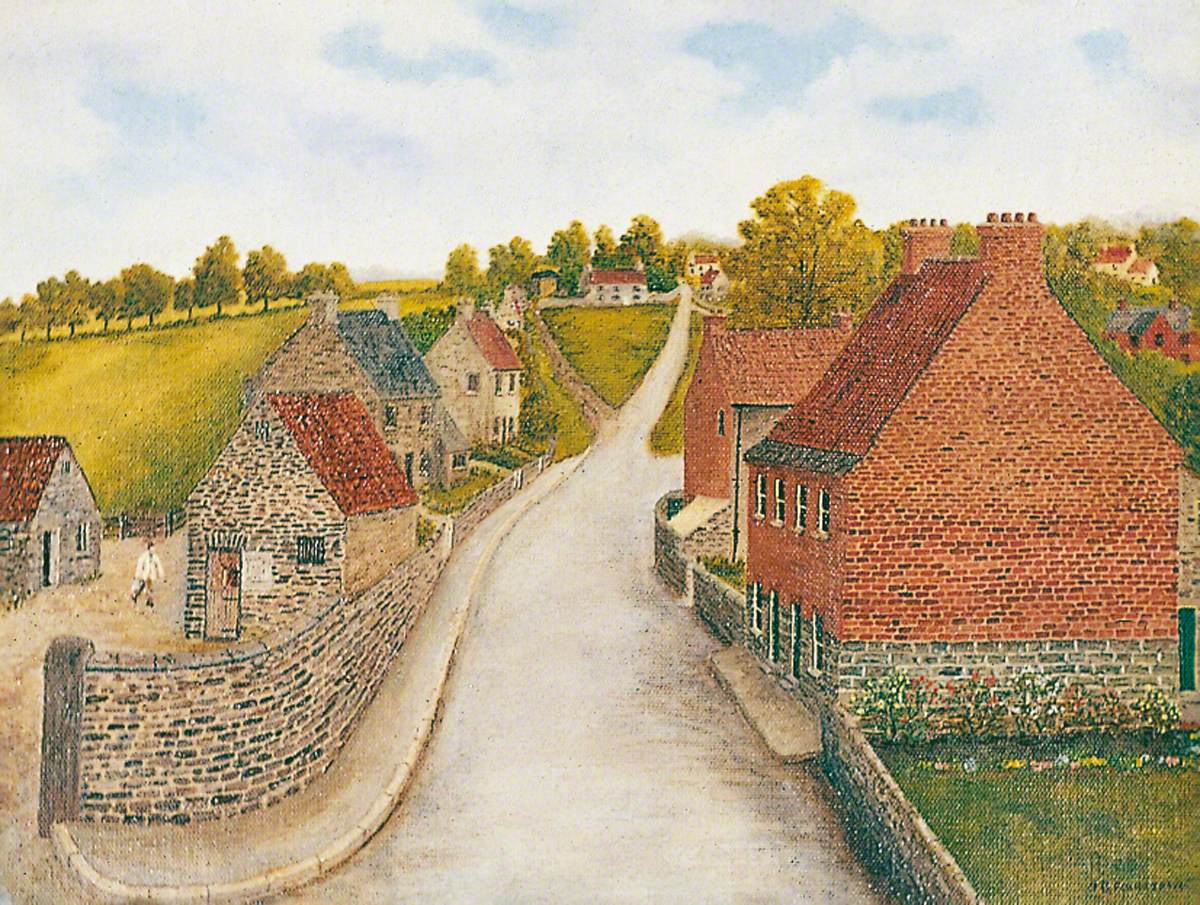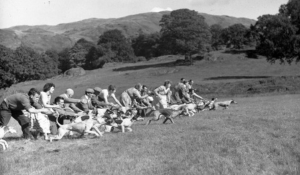VM12: Safe Home

There seems to be something inside us New Englanders that urges us, at some point, to buy a one-way ticket to California and just see how it goes.
No? Just me?
I took a year off after college to relax and save money. As one often did in those less frantic days, I found a job in a great, locally owned restaurant and proceeded to have myself a ball.
Hey, if you didn't fritter away at least part of your 20s in restaurant work, I think you missed out.
But then I lost my head and decided that California was the place to go next. I had so many friends who had moved there after college, and they all seemed to be having such a great time — in their apartments in San Francisco, their bungalows in Venice, their log cabins outside Arcata.
It all sounded ideal.
But then I got there — two suitcases and not much else in hand — and I knew almost immediately it wasn't for me. No offense to California! I'm sure California was just as bewildered by me as I was by it.
Oh, I tried. I visited all sorts of different corners and pockets of ye olde Golden State. Moved around (okay, couch-surfed) from friend to friend. Venice was lovely, but ever so strange. San Francisco? So expensive, and less fun when the closest you can live is an hour away. The great forested north was intriguing, but jobs were so scarce.
More than anything, it all just felt wrong. For me. You know what I mean?
Sometimes we make choices and then realize we're on the wrong path.
It took me a long time to learn how to evaluate my choices more carefully, to ask for advice from people I trusted before I leapt. Fortunately I was able to get out of California within a short time. Six months later, I was back on the East Coast, happily enrolled in graduate school. But I still remember how weird and off-kilter it felt to have been there — on the wrong path for me, in the wrong place, even for such a short time. And I know what it feels like now, to be right where I belong.
Thing is, I used to think that I could go anywhere, be anyone, and adjust to any old place. I didn't think I had any fixed opinions about where I lived, what I did, or who I did it with. It's all good, I would say. It's all okay with me.
I had to go to California to realize I had an opinion about all of these things.
In tech, we talk about building opinionated software. About building clear paths that take some of the burden of choice off users. We want to save them time, energy, and cognitive load. To help them find the value they're after, as soon as we can. We chart those paths, ideally, based on prior experience, on good data and feedback, all of which tells us what the best few choices might be.
It's all about knowing the context that user is coming from — who they are — and learning about their goals — who they want to be. Then shining a light on the paths that are most likely to help.
Opinionated software isn't so much about limiting choices as it is about illuminating the paths that are most likely to help, given a particular mixture of context and goals.
Sometimes the best thing we can do for each other is shine a light on the shadows that lie ahead. That's what good onboarding does. Onboarding should learn about the user and find out who they are, what matters to them and what they want to do, then shine a light on the paths they might want to pursue.
It's also something I do as a coach. And it's what I use a coach for.
I think a lot about my choice to run away to California when I was a youth. All I really did then was see a path that had been walked by some of my friends, and decided that what seemed right for them was perfect for me.
Crucially, I didn't ask anyone's advice or seek out people I trusted to help me think it through. And so I had to find out for myself that it was the wrong thing for me.
I don't feel it was wasted time, because now I know something about myself I didn't know before. I learned that not all choices are equal, that I do in fact have opinions and preferences about certain things. Like what the weather might be like on Christmas Day. The kinds of plants in my garden. The way the air smells in the fall.
Those are all valuable things for me to have learned. But now I try to learn some things about myself, when possible, without upending my life.
What I love about coaching is how I get to help people shine a light on their own best available options, help them take into account their own makeup, strengths, values, and goals. Then we can talk through and try on a few paths for size, all in the safety and security of a one-on-one chat.
And then, if you want to upend your life, go for it! Sometimes that's 100% the right call.
Finding the right path, whether in software or life, is like that. It goes better when we can shine a light on our:
Context - Who are we? What's important to us? What have we seen and experienced already? What are our values, needs, and beliefs?
Goals - Where do we want to go next? Where do we not want to find ourselves? What do we want our future to look like? Feel like? Do for us?
Paths - What are the choices available now? Are there well-worn paths that might work? Or are we better off in this case charting our own course? Are there options we're not considering, because we don't know what we don't know? What are those options? Do they align with our values and goals?
We might already know some of these answers, without even knowing we know. We might already have a flashlight in our backpack. Sometimes we just need a hand finding it, and switching it on.
I love this part of building software, because it's helping people do more, and be more in tune with who they are and who they want to become.
And I love it about coaching. For the same reasons, in fact.
Sometimes you do need to buy a one-way ticket to find out where you belong. But these days I like to talk it out first. And then see how it goes.

Old Scriven, Knaresborough by Joseph Baker Fountain (1907–1992)
.png?width=100&height=100&name=bd%20(2).png)
